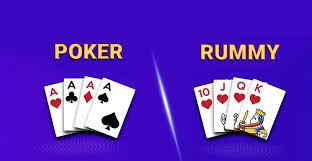
Gambling as an Escape from Poverty
In Pakistan, gambling often intersects with the country’s deep social class divide, especially for those in lower socio-economic brackets. For many individuals facing poverty, gambling offers a temporary escape from the harsh realities of financial struggles and limited opportunities. The allure of a sudden windfall—through cricket betting or card games like rummy—can seem like a quick solution to financial hardship. People from lower-income backgrounds may view gambling as a chance to change their economic situation overnight. However, this often leads to a vicious cycle, where initial losses deepen their financial problems, worsening their poverty and reinforcing social inequality. Gambling, for many, becomes a desperate gamble for a way out, but instead traps them further in economic despair.
The Role of Sports Betting in Class Dynamics
Sports betting, especially on cricket, plays a significant role in the gambling culture in Pakistan, with a clear divide between how different social classes participate. For wealthier individuals, gambling on sports is more organized, often involving high-stakes bets in private settings or online platforms. These bettors can afford to risk larger sums of money without immediate financial consequences. On the other hand, individuals from lower socio-economic classes engage in informal, street-level betting—often placing small wagers at local cafes or through informal bookmakers. These bettors typically have limited knowledge of the broader gambling industry and are often preyed upon by local syndicates or criminal networks. For the working class, gambling becomes a way to connect with others, but it exposes them to greater risks, including addiction and financial ruin, since they lack the financial cushion to absorb their losses.
Gambling and Organized Crime: A Symbiotic Relationship
The class divide is also evident in the connection between gambling and organized crime in Pakistan. In lower-income areas, illegal gambling operations are often controlled by criminal syndicates or gangs who profit by exploiting vulnerable individuals. These gangs set up underground gambling dens or run illicit sports betting operations, targeting those desperate for financial relief. When these individuals lose money, many fall into debt, sometimes turning to loan sharks or local crime rings to borrow money at high interest rates. This traps them in a cycle of gambling and debt. For wealthier individuals, however, gambling remains largely a private affair, with access to more secure and less risky environments like casinos or exclusive online platforms. The disparity in how different social classes experience gambling only widens the gap between the rich and the poor, reinforcing social hierarchies and deepening inequality.
The Psychological Impact on Lower-Class Gamblers
Gambling’s psychological toll is especially acute for individuals from lower socio-economic backgrounds. Faced with the pressures of poverty, many turn to gambling as a means of coping, but this only deepens their mental and emotional distress. The fleeting highs of gambling wins are quickly overshadowed by the crushing lows of losses, leading to anxiety, depression, and despair. For those with limited resources, a significant loss means not only financial instability but also a failure to meet basic needs like food, rent, or medical expenses. In some cases, gamblers may resort to illegal activities, such as theft, to cover their losses. The psychological effects of gambling—stress, guilt, and shame—can damage relationships and perpetuate cycles of poverty and crime, particularly in lower-class communities where access to mental health care and addiction support is limited.
Elite Perceptions of Gambling
For Pakistan’s elite, gambling often represents a form of luxury or entertainment, detached from the harsh consequences faced by poorer individuals. The wealthy typically engage in high-stakes gambling in private settings or exclusive venues, such as international casinos or private betting clubs, where they are shielded from the risks and public stigma that come with gambling in lower social classes. This detachment creates a sense of normalization among the affluent, where gambling is seen as a sophisticated pastime rather than a destructive vice. This perception contrasts sharply with the view of gambling as a dangerous and irresponsible activity among the lower classes, who often suffer devastating consequences. The elite’s more controlled approach to gambling reinforces the social divide, with the wealthy able to indulge in gambling as a recreation, while the poor face the financial, psychological, and social costs of their bets.
Conclusion: Gambling as a Reflection of Social Inequality
Gambling in Pakistan is not just a matter of personal choice; it is deeply intertwined with the country’s social class dynamics. For the lower classes, gambling often represents a desperate attempt to escape poverty, while for the wealthy, it remains a controlled and discreet form of entertainment. The prevalence of illegal gambling operations in poor neighborhoods, combined with the psychological and financial toll it takes on vulnerable individuals, exacerbates the gap between social classes. As gambling becomes more accessible, particularly through online platforms and sports betting, it is crucial to consider its impact on Pakistan’s economic and social fabric. Without proper regulation and support systems, gambling will likely continue to serve as a tool for exploitation, leaving the marginalized more vulnerable while offering little more than temporary hope to those already struggling.
Experience Thrills and Big Rewards at KKClub Casino – Pakistan’s Premier Gaming Hub!



